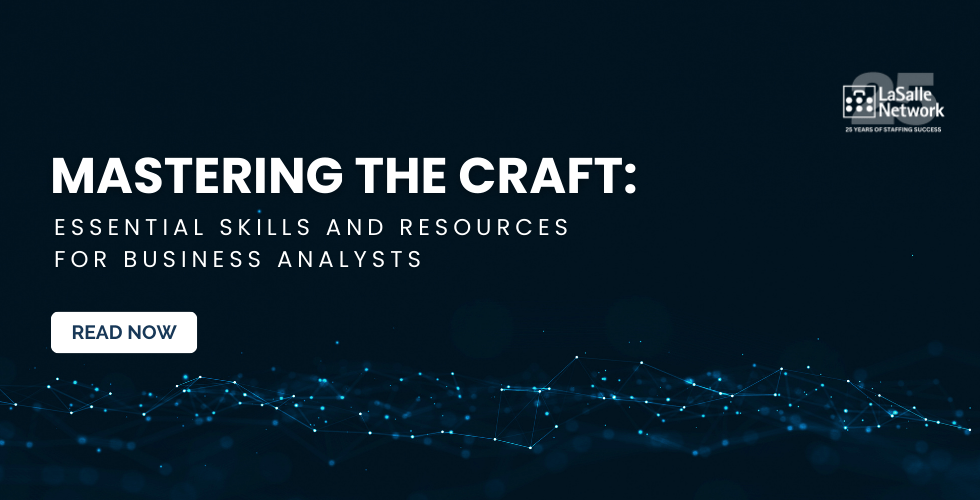In the intricate landscape of business development and project management, Business Analysts play a pivotal role in bridging the gap between technical and non-technical realms. They stand as integral contributors, ensuring seamless communication and success in diverse projects and initiatives. Below is a roadmap on how to excel in this role.
Top Technical Skills for Business Analysts:
A Business Analyst’s technical arsenal should include the ability to facilitate requirement-gathering sessions and compile comprehensive Business or Functional Requirement Documents. Familiarity with tools like Jira, which is instrumental for tracking, planning, and organizing work, is crucial for efficient project management.
Key Soft Skills for Business Analysts:
Attention to detail is a hallmark skill for Business Analysts, who often navigate complex organizational concepts and workflows. Patience is equally vital, as Business Analysts act as liaisons between groups with distinct languages, fostering understanding between technical and non-technical resources. Their patience is tested as they decipher business needs, align them with technical feasibility, and craft solutions that satisfy both sides.
Essential Certifications for Business Analysts:
The pinnacle certification for Business Analysts is the CBAP (Certified Business Analyst Professional), issued by the International Institute for Business Analysis (IIBA). While it stands as a mark of expertise, some companies may prioritize Project Managers having a PMP certification over Business Analysts holding a CBAP. As such, the choice of certification may depend on organizational preferences and industry standards.
Higher Education Options for Business Analysts:
Unlike some professions, there isn’t a specific degree program exclusively for Business Analysts. However, relevant undergraduate degrees such as a Bachelor of Business Administration provide a holistic understanding of different business areas, enhancing the potential for success as a Business Analyst. Concentrations or minors in Information Technology, Management Information Systems, or Finance can further enrich a Business Analyst’s skill set.
Online Resources for Business Analytics Development:
For those seeking to develop or enhance their business analytics skills, the International Institute for Business Analysis (IIBA) offers an expansive “Knowledge Hub.” This hub serves as a valuable online resource for aspiring and practicing Business Analysts, providing a wealth of information and insights to stay abreast of industry trends and best practices.
Becoming a proficient Business Analyst is a journey that blends technical prowess with soft skills and continuous learning. By mastering the essential technical and soft skills, pursuing relevant certifications, considering well-rounded education options, and leveraging online resources, aspiring Business Analysts can navigate the complexities of business development with confidence.






